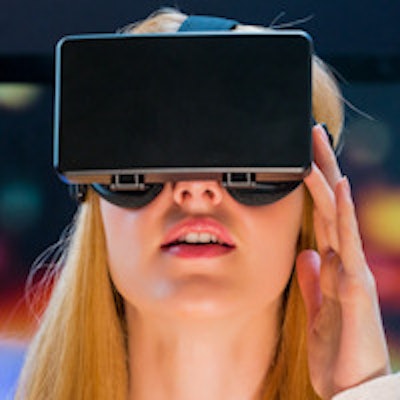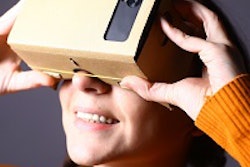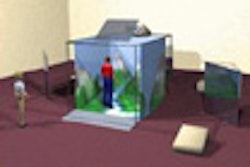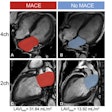
In a stroke of virtual irony, people with the best 3D vision are the most likely to experience motion sickness when viewing virtual reality (VR) displays, according to new research in the journal Entertainment Computing.
In the study, researchers tested the ability of 73 participants to withstand prolonged viewing of VR displays by running motion-heavy videos in an Oculus Rift 3D VR headset. Motion sickness is a persistent problem for game developers and, presumably, those who design 3D virtual reality environments for medical imaging.
Nearly two-thirds of study participants became overcome by nausea and quit watching the videos early. The participants who became ill were also the ones who performed best at judging the movement of objects toward or away from them, the authors reported (Entertain Comput, January 14, 2016).
"Individual differences, specifically in sensitivity to dynamic visual cues to depth, were correlated with experienced levels of discomfort," they wrote.
According to the sensory cue-conflict theory cited in the study, mismatched sensory information is behind the discomfort. The phenomenon occurs when people receive signals that tell the body they are both moving and not moving, said co-author Bas Rokers, PhD, an assistant professor of psychology at the University of Wisconsin-Madison.
For example, reading a newspaper in a car can cause nausea because the static newspaper conveys the message that the reader is not moving, while the turns and acceleration of the car tell a different story.
"It seemed natural that people who may be very sensitive to 3D motion might pick up on the fact that the visual motion signals provided in the Oculus can be inconsistent with balance signals," Rokers said in a statement.
Interestingly, only the perception of moving objects predicted motion sickness, according to the authors. Skill in identifying the relative depth of still objects was not associated with the 3D discomfort.
"These results suggest a number of potential methods to reduce VR-related motion sickness in the future," the group wrote in the study abstract.



















